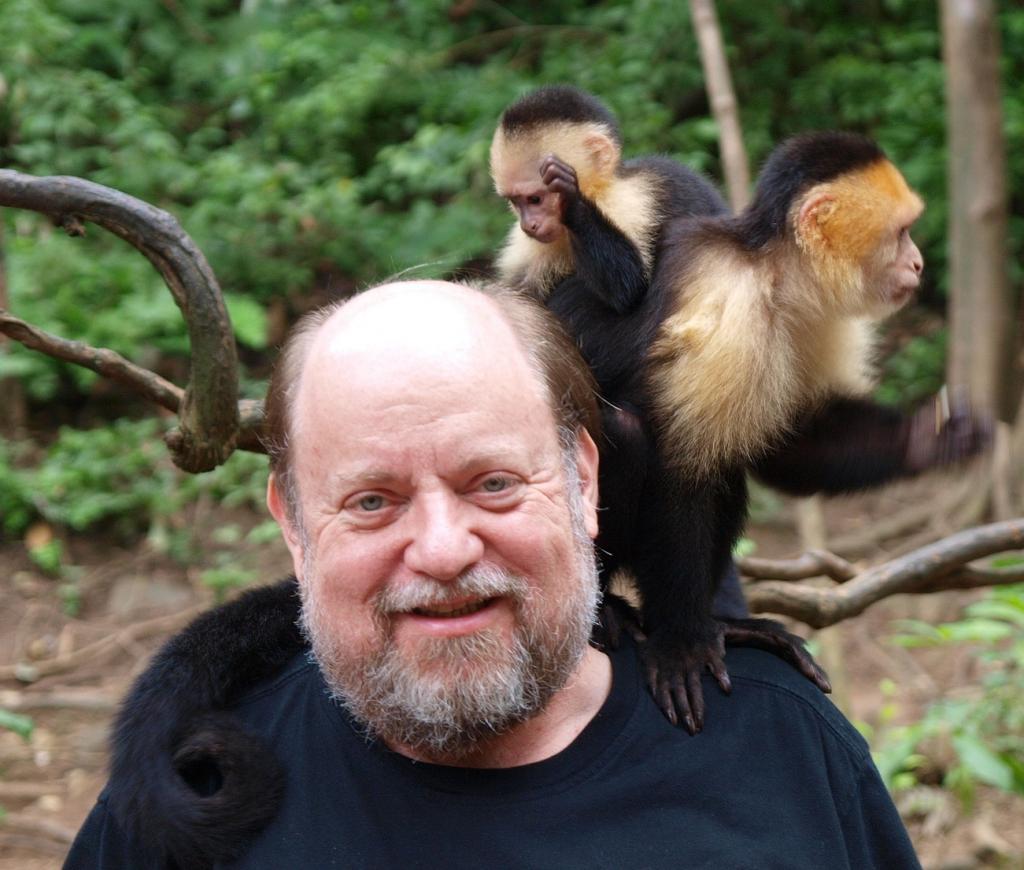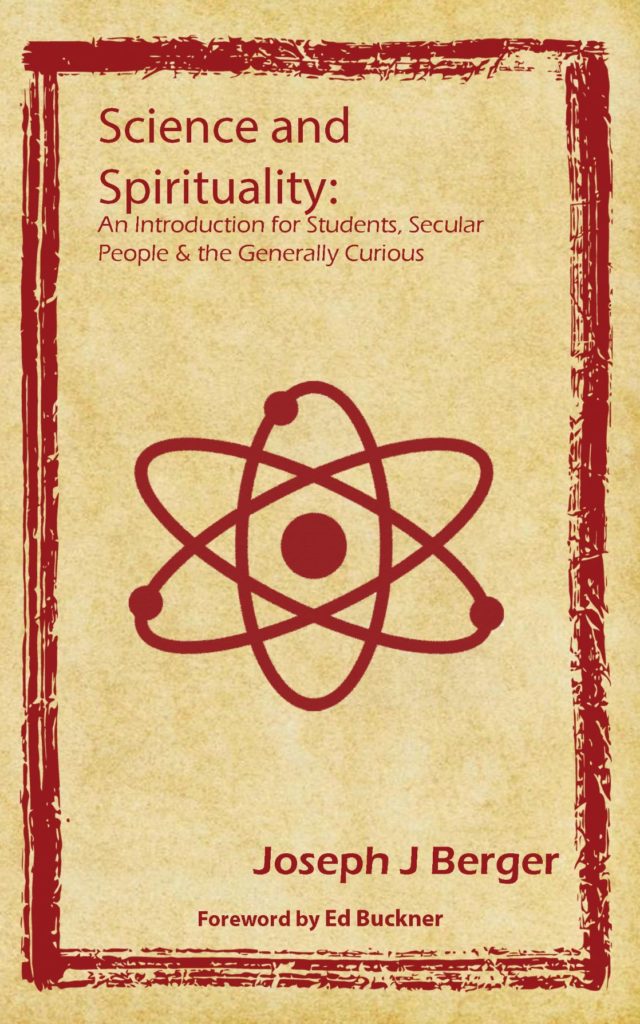Onus Books has recently published a book by Joseph J Berger called Science & Spirituality (Barnes & Noble), which is available now.
The book, as you will find out, is aimed predominantly at students as an introduction to scientific naturalism:
At whom is your book aimed and why did you feel a need to write it?
My intention in writing this book was to provide some of the current answers that science has developed for the questions that religion has traditionally addressed. As a college professor, I was thinking of my students when I wrote it. But throughout the process I was aware that it could also be helpful to any curious person, student or adult, especially if they may not have had the kind of science background that would have exposed them to this information.
Of course, I have thought about these questions all my life, and have discussed these ideas with students. But the idea for this project really began a few years ago in conversations with other faculty about how a person could find spiritual satisfaction, a sense of meaning in life, without religion. Some of the colleagues I spoke with were religious, some were secular. But the question of whether spirituality and a scientific worldview were compatible seemed to interest them all. People raised with religious beliefs really do frequently ask “Well if you don’t believe in God what do you believe in? Don’t you think there is anything greater than us?” And of course the answer is that science gives us a great deal to believe in and a very real sense of how small our place is. I know that this question has been addressed by other scientists, such as Carl Sagan, Richard Dawkins, Neil Tyson and others, but I wanted to provide a sort of “starter kit” for the topic.
One of the things that surprised me, by the way, is just how provisional some of the factual answers are. We all like to remind our students that science tries to provide the best answers we currently have, and is always revising those answers. I sometimes had to lay the project aside to concentrate on my day job, and when I got back to it I often had to revise the facts because of newer understanding.
Have you had any negative reaction to writing a book concerning humanism and naturalism?
Not yet. But now that the book has been published, I expect I may see some pushback. The Twitter mob just hasn’t found me yet.
What was your own journey to naturalism or have you always been so inclined?
My parents were both atheist/agnostic, but always emphasized that I would have to decide for myself what to believe. I don’t remember ever believing in magical explanations, though. An all-powerful God always seemed to me to be in the same category as Santa Claus or the Tooth Fairy. In other words, a pleasant fairy tale that made people feel better.
What do you think the limits to science are or do you think science has ultimate jurisdiction?
Science is a tool. It is without a doubt the best tool for what it is designed to do, which is to figure out how the natural world works. Nothing else, no other way of knowing, works as well as science for that purpose. And the proof is the predictive value of science. If you are trying to solve a problem, such as to prevent or cure illness, build a bridge, get to the moon, put most of the knowledge of human beings in your pocket, or to save the planet from environmental disaster, nothing works as well as science. But not every question is about how the world works. For example, I am in constant awe of art. I find a visit to an art museum to be genuinely moving, and I believe art is a human accomplishment as important as science. It just serves a different purpose.
What do you think the strongest argument for atheism is?
I would phrase it somewhat differently. Rather than make an argument for atheism, I would make an argument for critical thinking. I think once you rely on reason and critical thinking to understand the natural world, you would inevitably conclude that there is no evidence for the existence of gods. As has been said before, a world without gods would look exactly like the world we have.
What do you think the strongest argument for theism is?
I really can’t make an argument for theism, any more than I could make an argument for the existence of Santa Claus. I do think that religion has a powerful ability to unite people, sometimes for good, and to ease the angst we experience over our own mortality. But I think we can be good to others and form a community without religion, and I can’t really endorse making people feel better about death and suffering by telling a lie.

What are you most worried about and most confident or happy with in the world right now?
What worries me is that the success of science has also caused the greatest problems we face. The human population has soared in the last 150 years thanks to science and technology, especially the Germ Theory of Disease. But we haven’t yet figured out a solution to the problems caused by that increase in population, and it threatens our existence. We need food, clean water, space to live, education, medical care, sustainable energy for the 9 billion or more people arriving soon, and we need to do it while avoiding war, disease and ecological collapse. I am confident that science can solve these problems, or a least has the best chance of doing so, if we can put aside greed and ignorance and learn to cooperate. After all the talk about rationality, at this point I have to say that my belief that we can achieve this is really a matter of faith.
Tell us something surprising about yourself.
I am a serious cook, and have always done the cooking and food shopping in our family. I like to tell the story that when they were little, one of my daughters came home from visiting a friend and said, “Dad, you know I found out that in some families the mom does the cooking!”
This book provides a short introduction to humanism, aimed at students, young people and those seeking to understand a world without God and those who believe in a science-based, naturalistic worldview.
Berger takes the reader on a whistle-stop tour of the universe absent of a god and finds it to be enlightening, rather than scary; meaningful, rather than aimless; hopeful and rational.
Science and Spirituality is a refreshing introduction to the non-religious scientific worldview. Joseph Berger offers clarity to how religious and irreligious ideas do or do not entwine with science, making these complex topics accessible without opinion. This book is the perfect place to start in one’s journey to better understand the role of religion and science in shaping our view of one another and the world.
– Kristin Wintermute, Director of Education at the American Humanist Association

